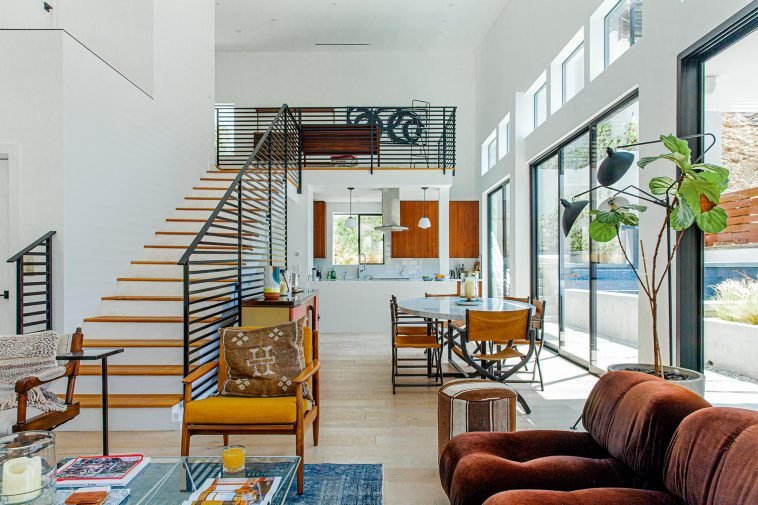Introduction.
Turning your apartment into an Airbnb can be a smart way to earn extra income and meet interesting people from around the world.
I’ve spent plenty of time researching and talking with hosts, and I know that this journey is as much about personal growth as it is about making money.
In this guide, I’ll share my experience and tips on how you can get started, cover the basic steps involved, and answer common questions that might pop up along the way.
Why Consider Turning Your Apartment Into an Airbnb?
Renting out your apartment on Airbnb is not just about extra cash—it can be an exciting way to make new connections and share your space with travelers who are eager to explore your city.
In many cities, short-term rentals have become a popular alternative to traditional leases.
For example, Airbnb currently hosts millions of listings in over 220 countries, showing that there’s a big demand for unique, homey experiences (Airbnb).
This trend gives you a chance to tap into a vibrant community of travellers looking for comfortable and authentic stays.
I started exploring Airbnb hosting after realizing how much unused potential my apartment had. With a little effort and creativity, it quickly turned into a steady source of income.
I learned that turning your space into a guest-friendly haven can boost your finances and help you discover more about your own home.
Steps to Get Started
1. Evaluate Your Space
The first step is to honestly assess your apartment. Ask yourself: Is my space guest-ready? Consider the layout, the amount of natural light, and the overall condition of the place. It’s important to create a welcoming atmosphere for anyone who steps through your door.
Think about adding simple touches like fresh linens, local artwork, or even a few plants. Small upgrades can make a big difference in how guests perceive your space.
2. Check the Legal Side
Before you jump in, it’s important to understand the legalities. Depending on where you live, there might be specific rules or permits required for short-term rentals.
For instance, some cities require hosts to register with local authorities, while others may have restrictions in your building’s lease. A good starting point is to check your local government website or even talk to your landlord.
This step might seem tedious, but ensuring you’re operating legally is essential for a smooth hosting experience.
3. Prepare Your Apartment
Once the legal boxes are checked, focus on making your apartment as inviting as possible. Clean every nook and cranny, fix any minor issues, and consider a bit of interior decoration that reflects your personal style.
Taking high-quality photos is also key; potential guests will decide if they like your place based on visuals before reading your description. I recommend natural light and a tidy setup—this works wonders.
A professional photographer can help, but even a smartphone with good lighting can do the trick if you’re careful.
4. Craft an Engaging Listing
Your listing is your chance to shine. Write a clear and honest description of your apartment, highlighting its best features. Mention the neighborhood, nearby attractions, and any special amenities you offer.
I like to share little stories about the local area to add personality to my listing. Also, set a competitive price by checking similar listings in your area. Websites like AirDNA can offer insights into local trends and rates.
5. Manage Bookings and Communication
After your listing is live, managing bookings becomes the heart of your hosting experience. Communication is crucial—respond to inquiries promptly, set clear house rules, and be upfront about what guests can expect.
Tools on Airbnb help you track bookings, reviews, and payments. Many hosts use a simple calendar system to keep track of reservations and cleaning schedules.
6. Create a Safe and Comfortable Environment
Guest safety is a top priority. Make sure your apartment has basic safety features like smoke detectors, a fire extinguisher, and a first aid kit.
Explain these features in your listing or welcome guide so that guests know you care about their well-being.
Adding a personal touch, like a welcome note with local recommendations, can make your guests feel truly at home.
Tips for a Great Airbnb Experience
- Be Transparent: Honesty goes a long way. Clearly describe your space and its limitations so that guests aren’t disappointed upon arrival.
- Offer Local Insights: Create a list of nearby restaurants, parks, and hidden gems. This not only enriches your guests’ experience but also sets your listing apart.
- Stay Flexible: Adjust your pricing and policies based on feedback and seasonal trends. Keeping an open mind can lead to improvements that benefit both you and your guests.
- Focus on Cleanliness: A clean space speaks volumes about your commitment as a host. Regular maintenance and cleanliness are non-negotiable.
- Engage With Your Guests: Even a short message asking if they need help or a quick follow-up after check-in can build trust and lead to great reviews.
Legal Considerations and Safety Measures
Many new hosts worry about the legal and safety aspects of renting out their space. Here are a few key points I’ve learned:
- Local Regulations: Different cities have varying rules on short-term rentals. Some places might require you to obtain a license or pay specific taxes. It’s a good idea to consult your city’s website or speak with a local expert.
- Insurance: Standard homeowner’s insurance might not cover short-term rentals. Look into specific insurance policies designed for Airbnb hosts.
- Building Rules: If you’re living in a building with shared spaces, check if there are any restrictions in your lease or building guidelines.
- Guest Safety: Provide clear instructions for emergencies and ensure that your apartment meets basic safety standards.
These steps have helped me run a smooth operation, keeping both guests and myself happy and secure.
FAQs
Here are a few frequently asked questions that I’ve come across, which might help clear up some doubts:
Do I need permission from my landlord to host on Airbnb?
It depends on your lease agreement and local laws. I always recommend reviewing your lease and having an open discussion with your landlord. This upfront conversation can prevent future issues.
How much extra income can I expect?
Earnings vary based on your location, the quality of your listing, and seasonal demand. Some hosts make just a little extra each month, while others earn enough to cover their mortgage. Tools like AirDNA can help you understand the market in your area.
How do I deal with negative reviews?
Negative reviews can be tough, but they’re an opportunity to improve. I address any concerns raised by guests and make adjustments to avoid similar issues in the future. Always respond politely and professionally.
How do I manage bookings if I’m not home?
Many hosts use key lockboxes or smart locks, which allow guests to check in independently. Additionally, clear communication through the Airbnb app can help you manage any questions or issues that arise.
Is it safe to rent out my apartment if I live there?
Safety is key. I make sure to only accept guests with good reviews and keep a set of clear rules in my listing. Also, having insurance and safety features in place provides added peace of mind.
Further Resources
If you’re looking for more detailed advice or ideas, here are some resources that helped me along the way:
- Airbnb Host Community: The Airbnb Community Center is a great place to connect with other hosts and get tips from experienced people.
- Airbnb’s Help Center: For official guidelines and best practices, the Airbnb Help Center is a must-read.
- Local Government Websites: Check your city or town’s official website for local regulations on short-term rentals. This step ensures you’re compliant with local laws.
- Online Tools: Websites like AirDNA offer market insights that can help you set competitive prices and understand local trends.
These resources have been invaluable in shaping my approach and can serve as a guide as you navigate your own journey.
Wrapping Up
Turning your apartment into an Airbnb is more than just a side hustle—it’s a chance to share your space with new people and build a little extra security for your finances.
I’ve seen how thoughtful preparation, clear communication, and a genuine desire to provide a great experience can transform a simple apartment into a sought-after rental.
From understanding legalities to setting up a safe and inviting space, every step has its importance.
With the right approach and tools at your disposal, you can create a memorable stay that stands out among the competition.
I hope this guide has given you a clear picture of what’s involved and has answered some of your questions about the process. Now, after reading all these steps and tips, what will be your first move in turning your apartment into an Airbnb?





GIPHY App Key not set. Please check settings